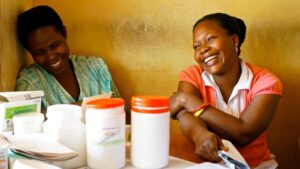‘Gross underpayment’ of women health workers undermines global health security
Six million women are currently subsidizing health systems across the world with unpaid or grossly underpaid labour, undermining global health security and women’s rights, reveals a new report from Women in Global Health.
The report – titled Subsidizing global health – compiled existing research and interviews with women health workers in Ethiopia, India, Malawi, Mexico and Zambia, finding a serious absence of data about women working unpaid in health systems.
At the start of the pandemic, some countries were unable to estimate their need for personal protective equipment (PPE) due to lack of data on the number of health workers delivering critical public health programs in communities.
Women in Global Health says the pandemic has exposed the magnitude of the ‘informal’ workforce in health, particularly in low income countries were female workers are often titled ‘volunteers’ or ‘community activists’ and are generally unrecorded in formal labour market statistics.

‘We know that women make up 90% of frontline health workers globally and there is a very clear connection between the failure to adequately pay health workers, mostly women and what’s being termed The Great Resignation of health workers, putting health systems under extreme stress,’ said Dr Magda Robalo, Managing Director, Women in Global Health.
‘Women would choose to be paid if they had that choice. Under paying or not paying them is not only a violation of economic justice, it is poor policy to engage a large proportion of your workforce under unacceptable working conditions. It is no wonder that so many are leaving the profession.’
The findings in Subsidizing global health mirror those of the Lancet Commission on Women and Health which calculated that women’s contribution to the global economy was $3 trillion, with half of that in the form of unpaid work.
‘It seems a paradox that very poor women with heavy work commitments should agree to take on additional unpaid work in health systems,’ said Ann Keeling, Senior Fellow with Women in Global Health and main author of the report.
‘But opportunities for paid work for women may be limited by lack of mobility or cultural ideas of decent occupations for women – under these circumstances, even unpaid work may seem like an opportunity.’
Photo by Ludi















